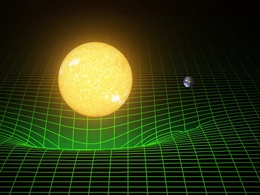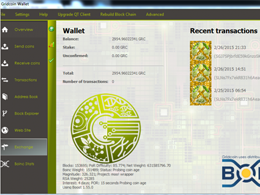
Scientific Research Needs a Trustless Blockchain Architecture to Be Trusted
Dr. Greg Irving, a Clinical Lecturer from the University of Cambridge, recently authored a research project on the potential impact of blockchain technology on scientific research. While the use is not novel in principle, it underscores the very reason blockchain was created. Why Scientific Research? Irving, and rightfully so, says that in order to truly trust scientific research the reader’s must know that the content and subsequent conclusions of the research has maintained its integrity throughout editing and publishing. The author references “outcome switching, data dredging, and....
Related News
A recent science publication on F1000Research ventures into the world of using Bitcoin technology to improve the trustworthiness of medical science. The trust in scientific research has diminished over the past few years due to data and evidence manipulation. And it’s possible that Bitcoin could restore that trust. Bitcoin Technology Timestamping For....
Scientific discoveries of enormous significance are happening at lightning speed in the field of Astronomy. These new breakthroughs convey enormous amounts of data. Scientists are sounding the alarm. Consequently, the present astrostatistics and astroinformatics tools are becoming insufficient to deal with what researchers are calling a”data tsunami.”....
The blockchain is enabling us to rethink the basic infrastructure of how certain assets can be tokenized, tracked and accounted for across multiple parties. One particular platform that could benefit from better asset tracking is the enterprise of scientific research. My goal here is to outline an approach to enhance the reproducibility of scientific research through increased transparency using the blockchain and highlight a new use case for distributed ledger technology. Venture capitalists and commercial partners often shy away from investing in early life-science ideas because a lot of....
To democratize science through decentralized science would allow for a new kind of interface layer for a modern Scientific Revolution. Scientists can leverage blockchain tools, such as smart contracts and tokens, to improve collaboration in scientific endeavors between different stakeholders. This so-called decentralized science movement, or DeSci for short, combines blockchain and Web3 technologies to improve scientific research.A primary goal of DeSci is wider participation and funding when approaching scientific challenges, as well as democratizing the peer-to-peer review process, which....
The Digital currency evolution started with bitcoin in 2009, the year when it was first introduced. Bitcoin and other altcoins have since then become a very important part of the world's economy. The popularity of bitcoin has made digital currency synonymous with finance and fintech sector. However, the use of digital currency is not confined to fintech anymore. The blockchain technology powering bitcoin is an open source technology which can be used for a wide range of applications. Scientific research is one such area which has gained a lot of attention in the recent days. There are many....





